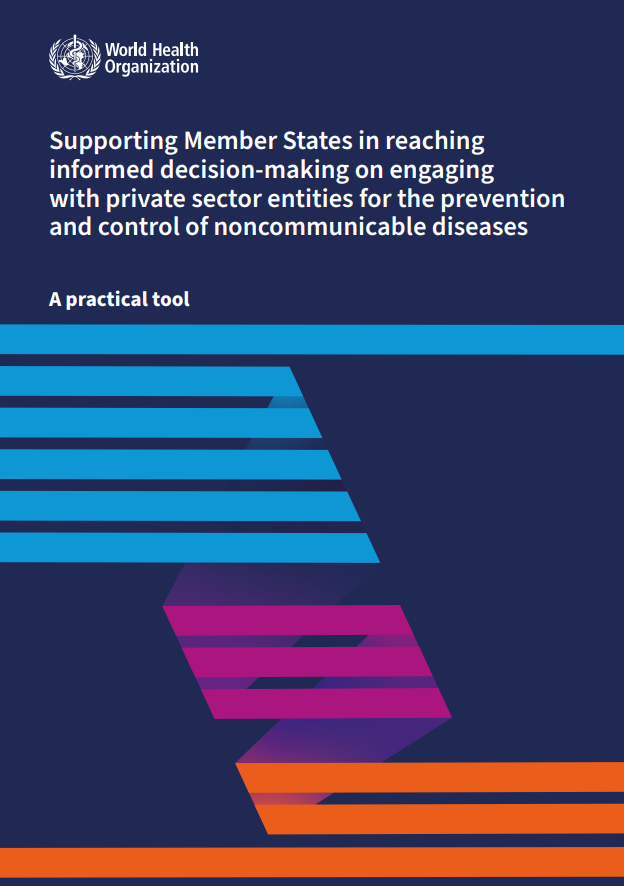This WHO tool provides governments and civil society organizations with a guide in assessing engagements with private sector entities in the prevention and control of NCDs. It recognizes the commercial determinants of health, taking into account the conditions, actions, and omissions of commercial actors that affect health. It offers principles to guide private sector engagement and a phased approach for an informed decision-making process on private sector engagement.
A key aspect of the tool is assessing which private sector entities have no alignment with public health.
A private sector entity producing and/or commercializing products and/or services that contribute to (i) the prevalence of modifiable behavioural risk factors such as tobacco use, physical inactivity, unhealthy diet, and harmful use of alcohol, and/or (ii) an adverse impact on the determinants of health, and/or a private sector entity whose goods, services or practices harm public health, is in no alignment with public health.
Engagement with such an entity must be limited to minimal, publicly transparent consultations to support the implementation of a public health policy or regulation.
It also refers to the WHO Less Alcohol Unit Brief on addressing and managing conflicts of interest in alcohol control policies.
Recommended citation:
World Health Organization. (2024). Supporting Member States in reaching informed decision-making on engaging with private sector entities for the prevention and control of noncommunicable diseases: a practical tool. Geneva: World Health Organization, https://www.who.int/publications/i/item/9789240094840



